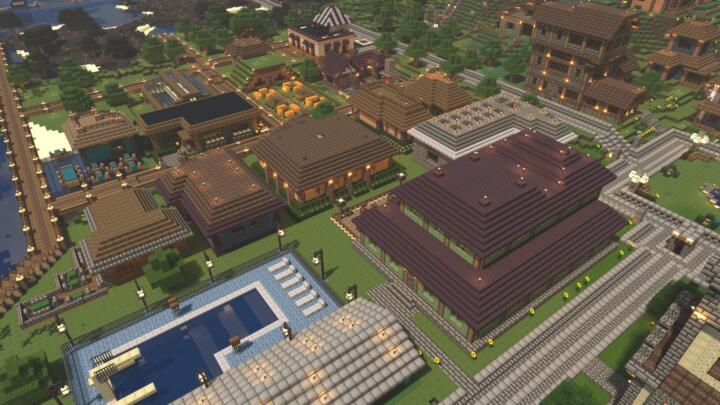
Team players wanted
Deafening noise from the stage shows of game producers and huge video screens showing scenes, plus long lines of visitors in front of the latest consoles for video and computer games: when Gamescom, the world’s leading games show, opens its gates at the Cologne Trade Fair halls a festival for the senses awaits the growing gamer community from all over the world. In the future, the show might also be of interest to recruiters.
In 2021, the games market generated worldwide sales of 180 billion U.S. dollars , long having outperformed other sectors of the entertainment industry such as sports, music and movie theaters. According to a survey by the consulting firm PWC, the gaming sector might achieve sales of around 320 billion U.S. dollars by as early as 2026. The coronavirus pandemic proved to be a booster for business because a lot of other entertainment options were not available.
While entertainment formats such as movies, comics or all forms of popular music have long been accepted as part of the cultural universe, computer games still have a perception problem. The industry benefited from the pandemic in that respect as well – at least that’s what Bartosz Skwarczek, co-founder and CEO of online gaming marketplace G2A.com, has observed: “Gaming has so often been painted with the wrong brush – stereotyped as being isolating and unsociable. However, the pandemic has shown that this could not be further from the truth.” Because gamers not only worked their joysticks to a red-hot glow but also avidly chatted.
Top 3 of the best-selling computer and video games
- Minecraft (238 million copies sold)
- Grand Theft Auto V (around 170 million)
- Tetris (EA version) (around 100 million)
For a long time, job applicants were advised to highlight hobbies like sports or practicing a musical instrument rather than gaming on their resumes. That might soon change as the most recent research results have shown. For a study conducted by Georgia State University, gamers and non-gamers were tested in a magnetic resonance imaging system (MRI). Because the gamers were clearly better at activating certain areas of the brain, they showed significantly better response times.
Neuroscientists at Universitat Oberta de Catalunya (UOC) in Barcelona obtained similar outcomes. Video games, the researchers found, can not only train cognitive skills. Once acquired, people will retain such skills beyond their active gaming careers.
As far back as in 2014, researchers at the Max-Planck-Institute for Human Development encouraged non-gamers to play daily and measured their brains using MRI during the study. They concluded that individuals regularly playing virtual games build up gray matter in the so-called hippocampus, which translates into better spatial orientation, a more powerful working memory and enhanced fine motor skills.
Gaming worlds as a team task
In today’s specialized world of work, project management skills, organizational and communication skills are increasingly in demand. Applicants with gaming experience often have a home advantage in that respect because many online gaming worlds require comparable abilities.
In the increasingly popular fantasy role plays, for instance, gamers regularly agree to meet for group adventures. Teams of up to 100 gamers are pitted against superior virtual opponents or other teams in coordinated ways. The team can only be successful in the end if all the team members perform their tasks precisely over long periods of time and help their fellow gamers in the event of problems.
As a result, even young gamers learn to keep highly heterogeneous teams together across linguistic and cultural barriers, to mediate in the event of conflicts and to find fast solutions for technical issues. For instance, when an important part of the globally connected team is incapacitated in the middle of a pixel competition due to a local internet problem.
At the same time, the gaming groups are in fierce competition with each other. If a team scores no successes the team members may threaten to switch to other teams. That calls for negotiation skills to keep them on board. Consequently, there are many parallels to the world of work.
Developing management skills in playful ways?
That’s why HR professionals and digitalization experts like Franziska Gerner value the practical soft skills of young team players. As Head of Digital Competencies at Schaeffler AG she knows that “Digitalization and gaming are a good fit because both are based on modern technologies, often require team spirit, a focus on problem solving and communication – and sometimes out-of-the-box thinking too. Those are precisely the kinds of skills we seek.”

"Individuals achieving good gaming results usually already have good management skills as well.“
Professor Markus Weinmann, an economist at Cologne University, has similar views: “In a study we showed that gamers who do well in strategy games such as ‘Sid Meier’s Civilization’ have higher organizational and planning skills in assessment centers. Consequently, HR professionals might be able to draw conclusions about specific management skills of candidates from their gaming experience.”
Even so, Weinmann doesn’t see computer games as training tools. Frequent gaming alone doesn’t unleash good leadership skills. Conversely, though, he says that there’s a conspicuous correlation: individuals achieving good gaming results usually already have good management skills as well.
Maybe headhunters will soon start looking for promising young professionals with outstanding team skills on the front runners’ lists of particularly challenging online games.







